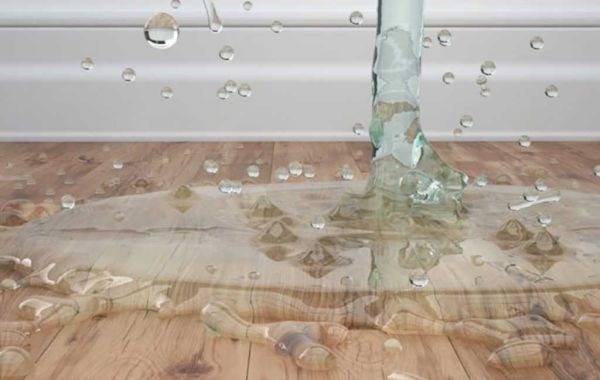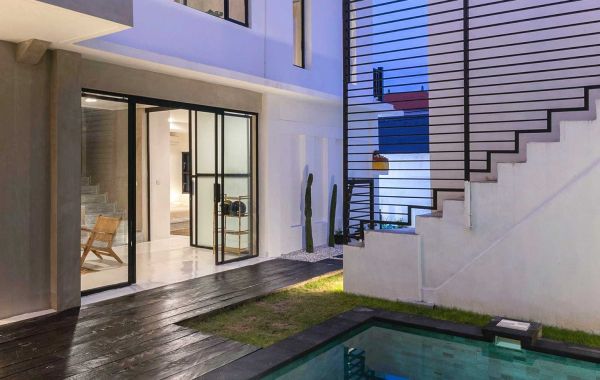When it comes to selecting flooring for areas prone to moisture—such as kitchens, bathrooms, and basements—homeowners are increasingly turning to waterproof options. Two popular choices are waterproof hardwood and waterproof vinyl flooring. Both of these materials provide the appearance and appeal of traditional hardwood while offering enhanced protection against water damage. But how do they compare in terms of durability, aesthetics, maintenance, and cost? Let's break down the key differences to help you make an informed decision.
Waterproof Hardwood Flooring: The Classic Look with Modern Protection
Waterproof hardwood flooring combines the timeless elegance of natural wood with cutting-edge technology to protect against moisture. Typically, the core of waterproof hardwood consists of an engineered wood base with a durable, water-resistant top layer that mimics the appearance of real hardwood. This construction allows the floor to resist swelling, warping, and other water-related damage.
Aesthetic Appeal
One of the main advantages of waterproof hardwood is its ability to offer the authentic look of hardwood. The texture, grains, and colors are strikingly similar to traditional solid wood floors, making it a perfect choice for those who want the sophistication and beauty of wood without the concerns of water damage.
Durability
Waterproof hardwood flooring is designed to withstand spills, moisture, and humidity, making it an ideal option for high-traffic areas in your home. While it is more resistant to water damage than regular hardwood, it is still essential to clean up spills quickly to avoid potential long-term issues. However, it should be noted that waterproof hardwood tends to be more expensive than vinyl flooring.
Maintenance
Maintaining waterproof hardwood is relatively simple. Regular sweeping and occasional mopping with a damp cloth will keep it looking its best. Avoiding harsh cleaners and excessive moisture will prolong the life of the floor.
Waterproof Vinyl Flooring: The Durable, Affordable Option
Waterproof vinyl flooring, often referred to as luxury vinyl plank (LVP) or luxury vinyl tile (LVT), is an increasingly popular choice for homeowners looking for a practical, cost-effective flooring solution. Constructed from multiple layers, vinyl floors are fully waterproof, which makes them a great option for wet areas.
Aesthetic Appeal
While vinyl may not offer the same authentic wood texture as hardwood, modern manufacturing has allowed for incredibly realistic wood-look designs. Vinyl planks come in a wide range of styles, colors, and textures that replicate the look of hardwood, stone, or tile, giving homeowners plenty of options to match their decor.
Durability
Waterproof vinyl is highly durable, especially in high-moisture environments. It is impervious to water, meaning it won't swell, warp, or stain when exposed to liquid. Its resilience against scratches, dents, and stains makes it a fantastic choice for families with children or pets. Furthermore, vinyl flooring is less prone to expansion and contraction than hardwood when exposed to temperature changes.
Maintenance
Vinyl floors are incredibly low-maintenance. They don’t require sealing, polishing, or special cleaners. Regular sweeping or vacuuming and the occasional mopping with a damp mop are sufficient to keep the floor clean and looking like new. Additionally, vinyl is known for its sound-dampening properties, making it an excellent choice for quieter spaces.
Waterproof Hardwood vs. Waterproof Vinyl Flooring: The Bottom Line
Both waterproof hardwood and waterproof vinyl flooring have their merits, and the decision ultimately comes down to your specific needs, style preferences, and budget.
Aesthetics: If you want the classic look and feel of real wood, waterproof hardwood may be your best choice. However, if you're open to a more budget-friendly option that still offers the appearance of wood, waterproof vinyl is a fantastic alternative.
Durability: Waterproof vinyl flooring is more durable in high-moisture areas and can better withstand heavy foot traffic, scratches, and dents. Waterproof hardwood, while still quite durable, requires more careful maintenance.
Cost: Waterproof vinyl flooring is generally more affordable than waterproof hardwood, making it a good choice for homeowners on a budget.
Maintenance: Both options are relatively easy to maintain, though waterproof vinyl has the edge in terms of low maintenance requirements.
Conclusion:
In both waterproof hardwood and waterproof vinyl flooring are excellent choices for moisture-prone areas, each offering unique advantages. Consider your priorities—whether it’s the natural appeal of wood or the affordability and resilience of vinyl—before making your decision. Whichever option you choose, you can enjoy a beautiful, water-resistant floor for years to come.







